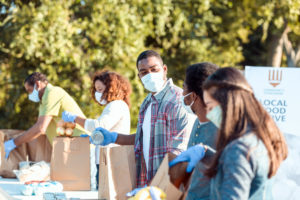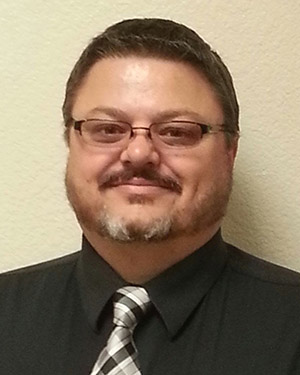There are many types of restorative justice programs in schools, meaning that one size doesn’t fit all. Our motto here at Payson High School is “One Team, Making Today Count.” As a part of “Making Today County,” we encourage our students and staff to take advantage of all positive opportunities, no matter how small or inconsequential. As the principal I, too, identify issues, find the long-term solution, then identify positive opportunities to assist in that solution. This type of thinking has allowed Payson High School to create solid programs for students, become a National Showcase School for Capturing Kids’ Hearts, and a National Reference School District for Google. All of these were created through small opportunities that expanded in the end, and the creation of our restorative justice program is no different.
It is imperative that schools identify their issues and create a system that works best for their specific needs. Some programs rely heavily in mediation, while others focus on rehabilitation. Our program is a blend of both mediation and rehabilitation.
As we began to track our data at Payson High School, we started to see correlations between suspensions and students reoffending in suspendable areas including legal offenses, more students with suspensions having lower or failing scores in school, and a growing number of students who stop attending classes. Based on that, our goals were simple: blend restorative practices with a diversion program so we can reduce the time out of class due to suspension; create a meaningful suspension time through learning opportunities, community service, counseling, and mentorship; and provide a system of opportunities to avoid legal consequences, all at no cost to our students. We knew it was a tall order, but we will never know what kind of opportunities are available if we don’t ask the questions.
Partnerships
As we shopped around our ideas, we were able to find several organizations willing to work with us, but only one that provided everything we asked for, including providing services that are free for our students. That was Community Bridges Inc., a local organization that seeks to support the health and wellness of Arizonans by raising awareness through educational presentations and workshops for kids, parents, teachers, and the community at large.
With this partnership in hand, we were able to create additional agreements with Gila County Probation and the Payson police department so we can provide wraparound services based on our students’ needs. With the plan in hand, we applied for a juvenile justice grant from the Governor’s Office of Youth, Faith, and Family. This grant allowed Community Bridges to hire a navigator, who is the mentor who works closely with the student and parents as they navigate the process, as well as following up with the student for three to six months after the completion of the program.
Process
Currently, the restorative justice program starts with the identification of the student through normal school processes, concluding with a meeting with parents/guardians. This meeting allows for an understanding of the situation, the school discipline, any legal consequences, and an offer of our diversion program. If the parent/guardian accepts the offer, then a call goes to the Community Bridges navigator for an intake meeting.
Following the intake agreement (an example of which is here), the navigator contacts Gila County Probation for its approval to move forward with the diversion program. When approved, the student’s suspension is cut in half and any legal charges will be held provided the obligations of the agreement are completed. If the student fails to complete any section of the program, then they will be required to complete the other half of the suspension and the charges may continue to move forward in the legal process.
Once the program has been accepted, the student is scheduled into evidence-based classes, community service, and mentorship programs with the Community Bridges navigator. Depending on the infraction, the student may be placed in a short-term program or a long-term one. Each of these programs explore at different depths life skills-based curriculum, including goal setting, decision making, risk and stress management, and reinforcing resistance to substances. Student offenders are also assigned community service hours based on the severity of their actions. These projects might include school cleanup, graffiti removal, or working at a community-based center such as the humane society in the hopes that we can teach perseverance rather than destruction.

When the student has completed the program, they are brought back onto campus after a quick meeting with the assistant principal congratulating them on their successes and notifying them of our support for their return.
Results
Among students who have completed the program, we have seen a lower rate of second-time offenses, an increase in classroom scores and pass rates, positive attendance rates, and positive changes in perception and awareness.
This program has been so successful that it has been recognized by the governor’s office as a model program in the state and has been replicated in neighboring school districts. As this program continues to expand, we were able to reconnect with Community Bridges to gain support for a risk behavior adolescent counselor to work directly with students with specific needs. The adolescent counselor will be able to assist students and families with a wide variety of issues from risk behaviors to substance abuse.
We have worked hard on developing the process, and we have modified it collectively several times based on what we have learned with each assignment. Our goal in this process is to do what is best for our students, and we are not afraid to continue to modify the program as needed.


1 Comment
Excellent program to work with students and families. Very needed and very proud of our Principal! Thank you for all the extra time and care put into our students.